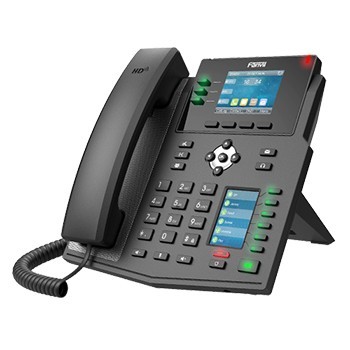#VoIPProviders
Explore tagged Tumblr posts
Text
Boost productivity with unified communications. Learn how VoIP, messaging, and cloud solutions enhance business efficiency
#VoIP#BusinessCommunication#FutureOfWork#VoIPSolutions#DigitalCommunication#ModernBusinessTools#CloudTelephony#VoiceOverIP#ManagedITServices#TechForBusiness#VoIPProviders#CommunicationTechnology#RemoteWorkTools#BusinessEfficiency#VodigyNetworks
0 notes
Text

Beyond calling VoIP is the next step in business communication! Upgrade today and enhance your communication strategy. VoIP isn’t just about making calls—it’s about transforming how businesses communicate! With features like video conferencing, call recording, AI-powered analytics, virtual numbers, and mobile compatibility, VoIP keeps your business agile, efficient, and ready for the future. Imagine seamless team collaboration, reduced communication costs, and advanced features all in one cloud-based platform! Ditch outdated phone systems and embrace all-in-one communication with VoIP today!
For more information : https://www.letsdial.com/
👉 Email:- [email protected] 👉 Contact No:- +1 917-779-0187
#VoIP#BusinessEfficiency#SmartCommunication#CloudCalling#TechInnovation#SeamlessWorkflows#FutureReady#VoIPSolutions#EnterpriseTech#ScalableCommunication#CloudTechnology#UnifiedCommunications#RemoteWork#HybridWork#CollaborationTools#VoIPTech#DigitalTransformation#BusinessGrowth#TechForBusiness#CloudComputing#GlobalConnectivity#VoIPForBusiness#VoIPPhone#CloudTelephony#ProductivityBoost#BusinessTech#SecureCommunication#NextGenTechnology#AICommunication#VoIPProviders
0 notes
Text
youtube
#VoIP#CloudTelephony#VirtualPBX#UnifiedCommunications#BusinessPhoneSystem#HostedVoice#CallCenterSolutions#CloudCommunication#IVR (Interactive Voice Response)#TelecomTechnology#VoiceOverIP#SIPTrunking#DigitalPhoneSystem#CloudCalling#VoicemailServices#RemoteWorkCommunication#CallRouting#VoIPProvider#CloudTelecom#TelephonyTrends#Youtube
0 notes
Text
AKOM Technologies, a well-known national distributor specializes in providing VOIP services for both the IT and telecommunications sectors. The hardware needed for a particular VoIP solution may differ depending on the provider. Some providers have their own designated phone systems, while others are compatible with any type of proprietary VoIP phone. Our extensive range of cutting-edge VoIP services includes GSM Gateway, IPBBX, PRI Gateway, PRI Card, Voice Logger, FXS/FXO Gateway, Headsets, and more.
VOIP Services
#tumblr#trending#akomtechnologies#milestone#post of the day#information technology#voipservices#gsmgateway#voipgateway#voipsolutions#microblogging#ippbx#fxogateway#fxsgateway#voipprovider#gsm#gateway#cloudservices#voltegateway#gatewayprovider#communication
1 note
·
View note
Link
Google Duo es un servicio propietario de VoIP y videotelefonía desarrollado por Google y disponible para Android, iOS y navegadores web. Esto permite a los usuarios realizar y recibir llamadas de voz y video grupales y en vivo con otros usuarios de Duo en alta definición con encriptación de extremo a extremo de forma predeterminada.
#google duo#GoogleDuo VoIP voipservices voipphone voipphone voipphone voipsolutions voipprovider video telefoniamovil telefoniacelular
0 notes
Photo

VoIP routes are typically managed by VoIP service providers, who use specialized software to route the calls through the most optimal paths available. These routes may be based on various factors, such as the availability of bandwidth, network congestion, or the quality of service requirements of the call. Click the link in the bio to learn more. For more information: 🌎 Visit:- https://www.acepeakinvestment.com/ 📲 Contact:- + 65 3158 376 📧 Mail:- [email protected]
#voiproutes#VoIPService#CommunicationSolutions#SmallBusiness#Entrepreneur#TechSolutions#VoIPProvider#BusinessCommunication
0 notes
Text
MobileDialer #voip #voipservices #mobileapps #android #iPhone #voipbusiness #voipsolutions #voipprovider #voipphone #voipsystems #voipbusinessphone #VoIPMobileDialer #oTTMobileDialer #WhitelabelMobileDialer #AndroidMobileDialer #iPhoneMobileDialer
0 notes
Photo

Unlock unbeatable savings with wholesale VoIP termination rates. Enjoy premium voice services without breaking the bank. Upgrade your communication infrastructure and optimize your business operations today. For more information : https://www.mycountrymobile.com/blog/wholesale-voip-termination-rates/ Contact Us : 👉 Email:- [email protected] 👉 WhatsApp:- +1 (917) 4447882 #MaximizeSavings #VoIPTermination #WholesaleSolutions #PremiumVoiceServices #AffordableRates #OptimizeBusiness #CostEffectiveCommunication #UpgradeInfrastructure #BusinessOperations #SaveOnCommunication #VoIPProviders #BusinessConnectivity #OptimizedSolutions #ConnectWithQuality #CommunicationUpgrade
0 notes
Photo

Call quality may be compromised due to various issues, let us discuss about few 1. Unstable Internet Connectivity 2. Poor Quality IP Phone 3. Server issues due to Natural Calamities etc. To troubleshoot visit at - https://lnkd.in/eE_xswC
#VoIPHomePhone#homephoneservices#voipproviders#technology#telecommunications#voipphoneservice#voipsolutions#unlimitedcalling
0 notes
Photo

Business VoIP Phone Service
Looking for the best VoIP service and business VoIP phone service? We provide reliable business VoIP phone service and VoIP service in Las Vegas. We have the reputation for being the best available business VoIP phone service and the best customer service.
for more info: https://bit.ly/3a2cF3u
#PhoneCompanies#PhoneCompany#VoIPProviders#VoIPPhoneSystem#BusinessPhoneSystems#VoIPService#VoIPServiceProviders#PhoneSystemsforSmallBusiness#BestVoIPService#BusinessVoIPPhoneService#PhoneServiceUSA
0 notes
Photo

Fanvil IP Phones X4U Enterprise IP Phone.
2 notes
·
View notes
Link
Super Services of Hosted VOIP New York
Setting up the networks of Hosted VOIP New York brings into impact the ‘Unified Communications and Collaboration’. If you wanting to go for the VOIP, search for the new deals at NetSoft!
0 notes
Photo

Say goodbye to roaming charges when you purchase AcePeakInvestment’s calling cards today. Make sure you stay connected with loved ones abroad and have amazing conversations from wherever you may be; all at pocket friendly prices. Pick up your card now and start talking for less! For more information: Visit:- https://lnkd.in/g4TPpKtv Contact:- + 65 3158 3765 Mail:[email protected]
0 notes
Text
Everything You Want to Know About VoIP
Hard phonesSoftphones
What is VoIP?
VoIP stands for Voice over Internet Protocol, and it refers to a combination of different technologies, protocols in particular, that work together to deliver voice communication over internet networks.
It is mainly used for telephony, where VoIP is used as an alternative to regular landlines that use PSTN or the traditional public switched telephone network.
What is a VoIP Provider?
VoIP service providers refer to third-party vendors that offer VoIP internet telephony solutions to customers. They leverage the technology as a cost-effective and, in a lot of ways, a better alternative to traditional landlines.
Most of the time, VoIP providers for business use it as the telephony component of a system that can be used by organizations not only to make and receive calls, but also to manage and route incoming calls.
What is a VoIP System?
A VoIP system or a VoIP phone system is a business phone solution that leverages Voice over IP as its main telephony component.
It is usually combined with PBX technology (https://www.ringcentral.com/small-business/blog/pbx-telephone-service/) for managing incoming calls. While VoIP is responsible for allowing users to make and receive calls, the PBX component answers all incoming calls and directs them to the right extension or department.
PBX can either be on-premise or cloud-based. On-premise PBX is housed within the company’s office building. It requires expensive and bulky hardware, like servers and physical PBX boxes. Since these are expensive and their installation can be costly, it would require significant capital investment from the business.
That is the reason why a lot of modern VoIP-based phone systems use cloud-hosted PBX for their call management features. Cloud PBX is hosted in the VoIP provider’s data center and is delivered via the Internet—similar to the way VoIP is set up. As a result, companies no longer have to buy new hardware or build IT infrastructure to support it.
These systems have also evolved into complete cloud communications solutions that offer more than just telephony and call management.
One of the newer features included is web conferencing, which allows multiple people to join the same call (even from different locations). These conference calls can be purely audio or can come with video. While the protocols for these meetings are pretty much the same as physical meetings, there are subtle differences like having to pay attention to who’s turn it is to speak to avoid confusion. Proper video meeting etiquette (see https://www.ringcentral.com/small-business/blog/business-voip-meeting-etiquette/) should be observed to keep everything professional.
How does VoIP work?
As said above, VoIP is made up of different sets of technologies working together to imitate the functionality of landlines. Some of these include:
Session Initiated Protocol (SIP) – used for signaling, which is used to establish, manage, and terminate connections. It is the part that rings the phone and then ends the connection when the call is over.
Real-Time Transport Protocol (RTP) – used for carrying the audio or video streams during actual VoIP transmissions.
Transmission Control Protocol (TCP-IP) or User Datagram Protocol (UDP) – depending on your provider, these protocols are the ones responsible for delivering VoIP protocols over the Internet. TCP-IP guarantees that data is delivered; and, if data is lost during transmission, the data will be retransmitted. IT prioritizes quality over speed. UDP, on the other hand, sends IP packets without any guarantees that it will be received. It will not resend the signals even if data is lost. It prioritizes speed over quality.
Codecs – these are used to convert analog audio (like your voice) into a digital format that can be sent over IP networks. When it reaches the other side, codecs are also used to convert the digital data to analog so the receiver can understand it.
Gateways – These are what allows VoIP transmissions to communicate with traditional landlines. What it does is that it converts traditional telephony connections into VoIP connections, and vice-versa. This way, landlines can communicate with VoIP digital lines can communicate as if they were using the same technology.
While the overall process of VoIP can be complicated, know that all these components work together in real-time to ensure that you have a regular conversation over VoIP lines.
How to use VoIP
You can make or receive VoIP calls from a variety of ways. There are generally two classifications on methods on how you can make calls using VoIP: you can use hard phones or you can use softphones.
Hard phones refer to physical telephones that are designed to allow VoIP transmissions. Some of the most common types include:
Desk IP phones – These are VoIP phones designed to mimic the look of a regular landline. But do not mistake it for a regular telephone; these are computing devices that are explicitly made for VoIP calls.
Conference phones – Also referred to as starfish phones because of their design, these are IP phones that made specifically for conference calls. Instead of being handheld, this works through a high-powered speaker and mic so that more than one person can use it to communicate with people operating from another location.
Reception phones – For businesses who prefer to have a human receptionist, these phones are IP phones that include an attached module which helps receptionists route calls to different extensions and departments.
These are software and applications that you can install in your computers, laptops, or mobile devices (like your cell phone or tablet), which will allow you to make and receive VoIP calls through them.
Most VoIP providers have separate softphone software for MAC and Windows computers and laptops and separate applications for iOS and Android mobile devices.
While the software and applications are different based on the operating system, most of the functionalities are still the same.
Conclusion
VoIP has emerged as a cost-effective alternative to landlines by means of leveraging different technologies that allow users to make and receive calls over the internet. Modern VoIP solutions providers have also embraced the cloud to equip companies with a business phone system that not only allows for online calls and call management, but also has added features like video conferencing.
The best part is that because it uses the internet, VoIP systems can be accessed and used with practically any device a user prefers: from hard phones that are designed for VoIP or through computers and mobile devices through a VoIP softphone app or software.
0 notes
Photo

Now-a-days working 8 hours has become a hectic job for employees working in every sector. Effective work management is possible with a bigger thinking!
0 notes
Photo

Top 6 Benefits of Switching to a VoIP Phone System
In this short article, we reveal and also discuss the benefits of VoIP Phone System, and exactly how changing from ISDN telephone systems to VoIP provides movement, flexibility and also improved productivity.
For more info: https://bit.ly/3bvlmnp
#PhoneCompanies#PhoneCompany#VoIPProviders#VoIPPhoneSystem#BusinessPhoneSystems#VoIPService#VoIPServiceProviders#PhoneSystemsforSmallBusiness#BestVoIPService#BusinessVoIPPhoneService#PhoneServiceUSA
0 notes